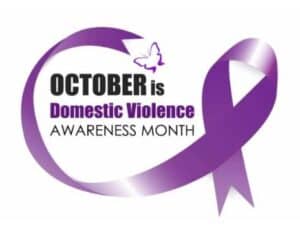Domestic violence is often understood as physical abuse, but it extends far beyond that. One of the most insidious forms of abuse is narcissistic abuse, which often manifests as coercive control. This dynamic can be difficult to identify because it operates in subtle, manipulative ways that leave victims feeling confused, isolated, and powerless. In this post, we’ll explore what narcissistic abuse and coercive control look like in the context of domestic violence, the warning signs to look for, and strategies for breaking free from this toxic cycle.
What is Narcissistic Abuse?
Narcissistic abuse is a form of emotional and psychological abuse perpetrated by individuals who exhibit narcissistic traits. These individuals typically seek to dominate and control their partners by undermining their sense of self-worth and manipulating their emotions. Narcissistic abusers are often highly skilled at creating a facade of charm and confidence, masking their controlling tendencies beneath a veneer of affection and care. However, beneath the surface lies a calculated effort to maintain power and control over their victims.
Coercive Control: The Heart of Narcissistic Abuse
Coercive control is a pattern of behavior designed to entrap a person within a relationship by eroding their autonomy and sense of self. Unlike overt physical violence, coercive control is psychological warfare, characterized by manipulation, gaslighting, isolation, and intimidation. The abuser systematically strips the victim of their independence and sense of agency, making it difficult for them to leave or even recognize the abuse for what it is.
Warning Signs of Coercive Control and Narcissistic Abuse
Gaslighting and Emotional Manipulation: One hallmark of narcissistic abuse is gaslighting—making the victim question their reality. The abuser may deny their abusive behavior, blame the victim, or twist events to make the victim feel like they are the problem. This leads to self-doubt, confusion, and a loss of trust in one’s perceptions.
Isolation from Support Systems: Abusers often isolate their victims from friends, family, and any other potential sources of support. This isolation increases the victim’s dependency on the abuser, making it harder to reach out for help. It may be subtle, such as making the victim feel guilty for spending time with others, or more overt, such as forbidding certain relationships altogether.
Financial Control: In many cases of coercive control, the abuser exerts dominance by controlling the victim’s access to money and financial resources. This keeps the victim dependent on the abuser and prevents them from leaving the relationship, as they feel they lack the financial means to do so.
The Impact of Narcissistic Abuse and Coercive Control
The psychological toll of narcissistic abuse and coercive control is immense. Victims often experience feelings of worthlessness, shame, anxiety, and depression. Their sense of self is gradually eroded as they internalize the abuser’s manipulative messages. Over time, this can lead to emotional numbness, difficulty trusting others, and an inability to make decisions without fear of repercussions.
Victims of narcissistic abuse may also suffer from trauma bonding, where they feel a deep emotional connection to their abuser despite the harm being done. The abuser’s intermittent acts of kindness or affection create a powerful psychological bond, making it harder for the victim to break free.
Breaking Free from Narcissistic Abuse and Coercive Control
Recognize the Abuse: The first step in breaking free is recognizing the patterns of narcissistic abuse and coercive control. Educating yourself about these dynamics is crucial to understanding what you’ve experienced and reclaiming your sense of self. Therapy can provide invaluable insight, helping you identify and process the manipulation and gaslighting that have taken place.
Build a Support Network: Breaking free from an abusive relationship is incredibly difficult, especially when isolation has been a core part of the abuse. Reaching out to trusted friends, family, or domestic violence support services can provide the emotional and practical support needed to leave the relationship. Support groups and counseling can also offer a safe space to connect with others who have experienced similar situations.
Set Firm Boundaries: Establishing and maintaining boundaries is essential when escaping an abusive relationship. This may involve cutting off all contact with the abuser, blocking their number, and ensuring they do not have access to your social media accounts or personal information. Legal measures, such as restraining orders, may also be necessary to ensure your safety.
Seek Professional Help: Healing from narcissistic abuse requires time, patience, and support. Therapy, particularly trauma-informed counseling, can help you rebuild your self-esteem and work through the emotional scars left by the abuse. Engaging with a therapist experienced in domestic violence and narcissistic abuse can provide you with the tools to reclaim your sense of autonomy and self-worth.
Conclusion
Narcissistic abuse and coercive control are devastating forms of domestic violence that often go unnoticed. These manipulative and insidious tactics can trap victims in relationships that are difficult to escape. However, recognizing the signs of narcissistic abuse and coercive control is the first step toward breaking free and reclaiming your life. With the right support and resources, it is possible to heal from the emotional trauma and regain your independence.
If you or someone you know is experiencing domestic violence, help is available. Contact a local domestic violence hotline or seek out a counselor who specializes in abusive relationships. You deserve to live free from manipulation and control.
Resources:
– National Domestic Violence Hotline: 1-800-799-7233 (SAFE)
– The National Coalition Against Domestic Violence: www.ncadv.org
– National Alliance on Mental Illness: www.nami.org
By spreading awareness, we can contribute to a future where survivors of domestic violence are met with understanding, support, and the mental health care they deserve.

